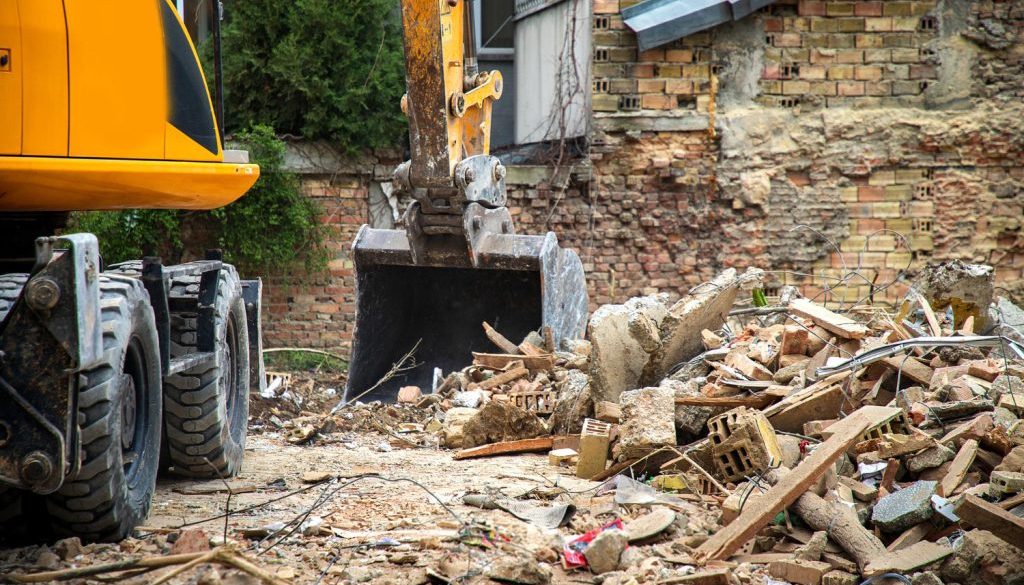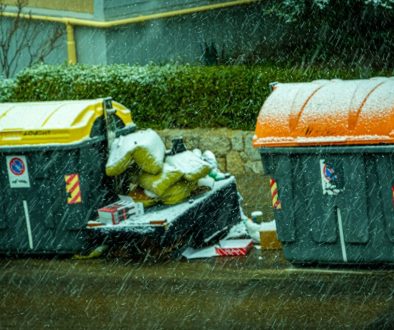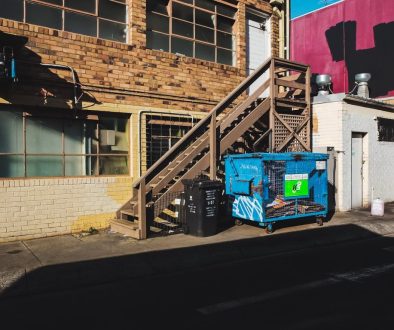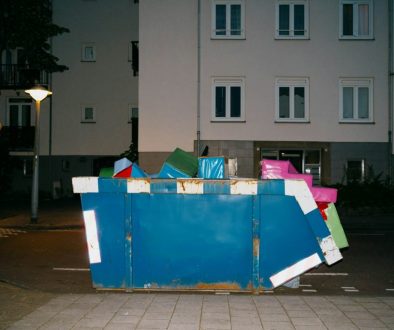Managing site waste isn’t just about keeping the area tidy; it’s crucial for sustainable, cost-effective project management. Waste, especially on construction sites, can range widely from inert debris to hazardous materials, each requiring a distinctive approach for disposal or recycling. Here at Enviro Skip Hire, we are professionals dedicated to enhancing waste management practices, and as such we understand the importance and challenges associated with proper construction waste disposal.
Sorting and recycling construction waste optimally can significantly reduce the environmental impact and costs associated with construction projects. Our approach combines knowledge of materials, dedication to environmental sustainability, and practical solutions like skips designed specifically for various types of waste. We guide you through understanding the components of your construction debris, effective sorting strategies, and how our tailored skip services can streamline your waste management efforts. Let us help you transform your construction site into a model of efficiency and environmental responsibility.
Understanding Construction Debris and Why It Matters
Managing construction debris effectively is essential not just for keeping a project site orderly but for fostering an environmentally responsible construction practice. Construction debris, often comprising broken bricks, concrete, wood, insulation, electrical wiring, and potentially hazardous materials like asbestos and paint, can significantly impact the environment if not handled properly. It’s crucial for us to understand the makeup of these wastes to determine the best disposal or repurposing methods.
One of the first steps in effective waste management is identifying and categorising waste. By recognising the type of debris we handle, we ensure that materials such as steel and wood are not just dumped in a landfill but are sent to appropriate recycling or repurposing facilities. This approach not only helps in reducing the volume of rubbish that ends up in landfills but also supports recycling industries and conserves natural resources. Ultimately, understanding and adequately managing construction debris lays the foundation for sustainable building practices, reflecting positively on our environmental compliance and social responsibility.
Steps to Effectively Sort and Recycle Construction Waste
Sorting construction waste on site is a critical step to ensure it is recycled properly. Here are some effective ways to sort and manage this waste stream:
1. Set up Clearly Marked Waste Stations: We establish designated areas on site for different types of waste—metals, wood, plastics, and hazardous materials. Each station has clear signage to avoid confusion, ensuring that waste is disposed of in the correct skip.
2. Train Site Staff: We ensure all staff members are trained on waste management protocols. Training employees to recognise different types of waste and the correct way to dispose of them can significantly increase the rate of recycling.
3. Implement Waste Minimization Techniques: We use strategies like precise ordering of materials to prevent excess and encourage the reuse of materials wherever possible, further reducing the amount of waste generated.
4. Engage a Waste Management Contractor: We partner with professionals who can ensure that waste sorted on-site is managed appropriately thereafter—whether it’s being taken to a recycling plant or handled according to hazardous waste regulations.
By taking these steps, we help to minimise the environmental impact of construction projects while promoting a recycling culture within the industry. This process not only complies with environmental legislation but can also reduce the cost of waste disposal and the purchase of new building materials.
What Can Be Recycled? A List of Common Construction Materials
A significant volume of construction waste can, indeed, be recycled, turning what would have been rubbish into valuable resources. Common materials include concrete, bricks, metals, wood, glass, and certain types of plastic and insulation materials. Concrete and bricks can be crushed and reused in new buildings or road-based projects. Metals are perhaps the easiest to recycle; they are sorted, melted down, and reformulated for various applications. Wood that is untreated can be repurposed into chipboard or other forms of timber sheets.
Glass and plastics, often overlooked, are also recyclable. Glass can be used in the production of new glass products, like bottles or even fibreglass. Plastics, depending on their type, can be transformed into a myriad of new products, from pipes to plastic lumber, offering considerable environmental benefits as opposed to producing new plastic material. These processes not only help in reducing landfill waste but also conserve the natural resources that would otherwise be used to manufacture new materials.
How Our Skip Services Can Simplify Your Recycling Efforts
Our skip services represent a straightforward solution to your recycling needs on construction sites. By providing different skips for various types of waste, we simplify the segregation process, making recycling more efficient. We offer skips specifically for inert waste like soil and concrete, which can be processed and utilized in construction projects, while another skip might be dedicated to metals, ensuring they get sent directly to recyclers.
Moreover, we understand that not every site manager or construction business has the time or resources to sort waste meticulously. That’s why we also provide consultancy services to help plan the most efficient waste management strategies, keeping projects compliant with regulations and environmentally friendly. By using our skips, construction sites can significantly reduce their environmental footprint, efficiently managing waste without complicating the process.
Our Commitment to Efficient Waste Management
Understanding, sorting, and effectively recycling construction waste are key pillars of sustainable building. These practices help maintain regulatory compliance and play a crucial role in preserving the environment and reducing costs through smarter material management. Our skips and waste management services are designed to support these goals, providing professional solutions tailored to the needs of each site and project.
We are not just facilitating waste disposal; we are enhancing recycling efforts across Staffordshire, aiming for a greener future in the construction industry. If you’re looking to streamline your construction waste management and recycling processes, reach out to us today. Let us help you make your site cleaner, greener, and more compliant. Contact Enviro Skip Hire to find out how our skip hire in Chester and beyond can help your construction waste needs.




